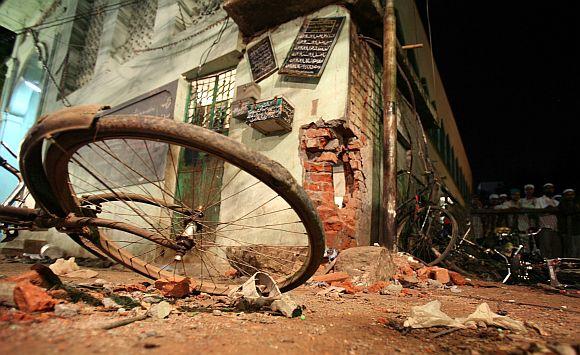
By politicising and communalising the investigation process into terror-incidents like the 2006 Malegaon blasts case, the government will be further vitiating the relationship between the two communities and paving the way for more acts of terrorism in future, feels senior analyst B Raman.
The politicisation and communalisation of the investigation process since 2006 in terrorism-related cases has led to a paralysis of the investigation machinery in the states and the government of India.
The result: Barring the 26/11 terrorist strikes in Mumbai which were successfully investigated and prosecuted, our investigating agencies have not been able to detect any of the post-26/11 terrorist strikes in Pune, Mumbai, Varanasi and New Delhi. Said so, they have not been able to successfully prosecute even the major terrorist incidents that had taken place before 26/11.
The beneficiaries -- the terrorists involved in these strikes, who continue to be at large, possibly planning more strikes. We do not even know who were the people involved in the post-26/11 terrorist incidents, and whether the suspects who were arrested and prosecuted for their alleged role in the pre-26/11 incidents were really the perpetrators.
Please ...
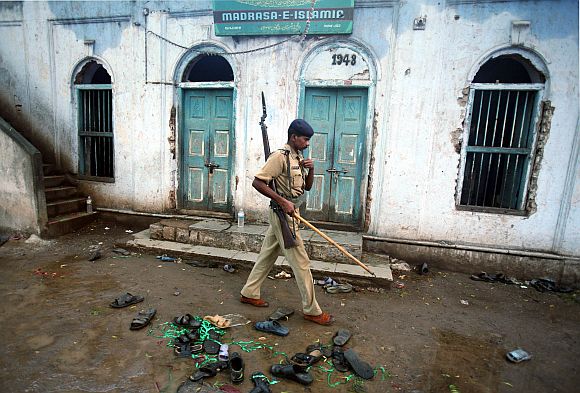
Nothing illustrates the confusion that prevails in our investigation machinery more disturbingly than the confusion worse confounded in the case relating to the September 8, 2006 blasts in the textile town of Malegaon in Maharashtra, which killed 31 people, many of them Muslims.
Please see here my analysis of these blasts written two days after the incident. (External link)
The Anti-Terrorism Squad of the Maharashtra Police completed the investigation in record time and filed a charge-sheet on December 20, 2006, against nine Muslims, who were accused of having links with the Students' Islamic Movement of India and the Pakistani Lashkar-e-Tayiba.
Despite the filing of the charge-sheet, the Maharashtra government handed over the investigation to the Central Bureau of Investigation following complaints regarding the investigation made by the ATS received from minority representatives and political parties.
The investigation has taken a different turn since then. It has been made out by the central investigation agencies -- initially by the CBI, and later by National Investigation Agency -- that the Malegaon blasts of 2006 as well as some other terrorist strikes in Hyderabad, Malegaon (2008), Ajmer Sharif and on board the Samjhauta Express were actually carried out by some Hindu radicals who wanted to start a campaign of reprisal terrorism against Muslims.
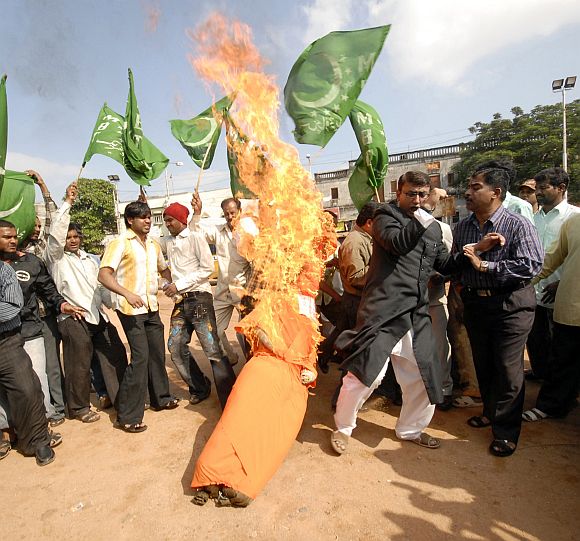
The original charges of the ATS against the arrested Muslims and the subsequent charges of the CBI and the NIA against the arrested Hindus relied largely on uncorroborated confessions.
There was no scientific investigation with painstaking collection of circumstantial and forensic evidence either by the state police or by the central agencies.
As it always happens in such cases, those who confessed subsequently retracted. In the absence of substantial circumstantial and forensic evidence to back up the charges, the Malegaon case of 2006 has been hanging in mid-air.
There has been no scientific forward movement in the investigation against either the arrested Muslims or Hindus.
The result has been that neither the state police nor the central investigation agencies have had the moral courage to admit that the investigations against the arrested Muslims and Hindus have been very badly botched up and now there is no possibility of the truth being found out.
What we have against the Muslims arrested by the state police and against the Hindus under investigation by the central agencies is a series of allegations, insinuations and conjectures, but no legal evidence which will stand scrutiny in a court of law.
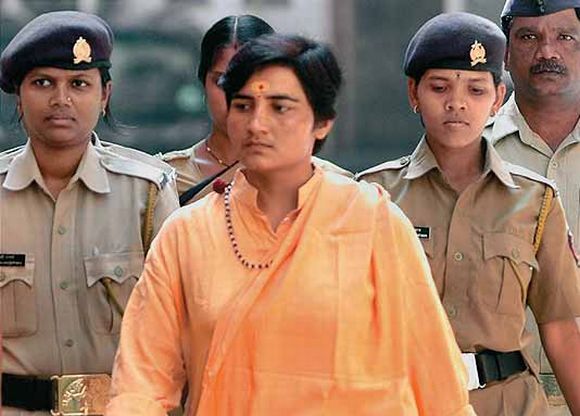
We have had the intriguing spectacle of the NIA not opposing bail applications from the nine Muslims originally arrested by the Maharashtra ATS, but at the same time refraining from ordering a closure of the investigation against them by submitting a final report in the case.
The report would have ended the investigation once and for all unless some fresh evidence was found, warranting a re-opening of the investigation.
The Muslims released on bail would have been deemed innocent -- neither accused nor suspects. By not opposing bail to them, and at the same time, by not submitting a final report in the case, the NIA has kept them under the status of no longer accused, but still suspects. This doesn't re-establish their honour in the eyes of the society.
In the case of the Hindus arrested in connection with some cases of reprisal terrorism, the facts and circumstances are exactly the same as in the case of the nine Muslims arrested in connection with the Malegaon 2006 blasts.
That is, apart from the retracted confession of Swami Assemanand, there is hardly any circumstantial and forensic evidence against them.
And yet they have been treated as suspects as well as accused. The mitigatory yardstick followed in the case of the Muslims has not been followed in the case of the Hindu suspects, one of whom is a religious lady.
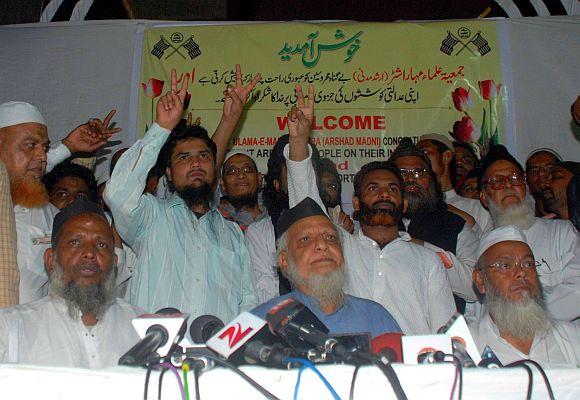
In the eyes of the government of India, it is all right to be harsh with the Hindus, but not with the Muslims. Deplorable double standards adopted in the case of the two communities.
The result of the blatantly differential handling of Muslims and Hindus in the application of the same laws of criminal procedure would be to add to their anger against each other and against the government.
We will be playing into the hands of the jihadi terrorists and their Pakistani sponsors by aggravating the polarisation between the two communities and facilitating the Pakistani objective of creating a wedge between them.
The differential handling brings out clearly the political calculations of the government in view of next year's elections in Uttar Pradesh.
Boosting the Muslim vote bank even at the risk of losing some Hindu votes has become the driving force of the investigation process.
Seven of the Muslims were out on bail on Wednesday and rejoined their families, but the Hindus will continue to languish in custody till the UP elections are over.
This is not the way to fight any terrorism -- jihadi or Hindu reprisal. By politicising and communalising the investigation process, the government will be further vitiating the relationship between the two communities and paving the way for more acts of terrorism in future.